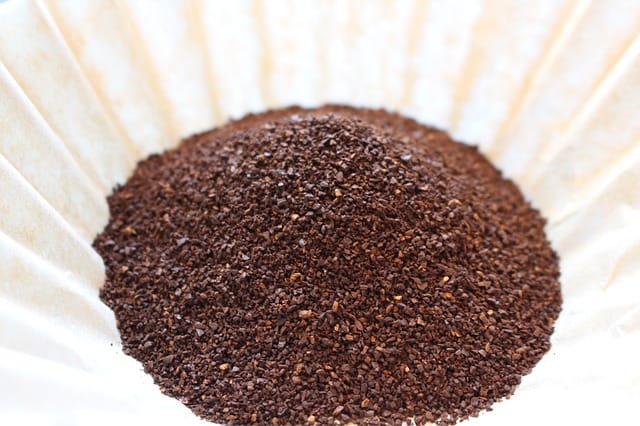For a typical single-cylinder mower, 500-750 hours is considered to be a lot of mileage, but that doesn’t mean that it will be entirely worn out. A mower that has clocked 1000 hours or more may still be functioning in relatively good condition and still have many hours left to run, provided that it has been well maintained.
The rest of this article will go into detail about how the hours run on a mower and the miles travelled are related, the influence this is likely to have on the machine and how to tell if a mower still has a decent amount of life left in it.
How Can I Tell the Number of Hours a Mower Has Travelled?
Whether you are purchasing or selling a used mower, or simply keeping track of the lifespan of your mower at home, finding out the hours is an important piece of information. Usually, you will find this on the “hour meter”, a digital clock located on the dashboard which keeps track of how many hours the engine has been running.
Are the Engine Hours Counted When the Blade Isn’t Running?
This information can be important when considering the warranty on a mower, which may be offered up to a number of hours of usage instead of years of ownership. Some meters calculate hours as the amount of time that the engine has been running, while others will only calculate under load, so it is worth checking for your machine.
How Many Miles Does 1000 Hours Mean for a Mower?
Depending on how it is used, an average household mower would be running at around 5mph, so 1000 hours might mean that a mower has travelled around 200 miles, which is a significant total distance for any mower. This would depend on the average speed that your mower travels, including turning, slowing down and reversing.
How Many Hours Will My Mower Be Running?
To figure out how many hours you will be using your mower, you will need to calculate how often you are mowing and what size the space will be. For an average ride-on mower, it takes between 30-50 minutes to mow one acre of lawn.
How Long Should a Mower Last?
Most mowers are only run for around one and a half hours per week for eight months over the course of a year, which means that in total they are used for less than 50 hours a year. You can expect a mower to last for 15 years if it is properly maintained and cared for.
Does Engine Type Affect How Many Hours a Mower Can Last?
For gas-powered riding lawnmowers, the number of cylinders, engine capacity, or fuel type can affect how many hours you would typically expect them to last. A single-cylinder engine is likely to last 500-750 hours, whereas a two-cylinder engine is more likely to make 1000-1500 because each cylinder has less work to do.
Which Makes of Mower Last the Most Hours?
Briggs and Stratton mostly make smaller mowers for average workloads, with a guaranteed life expectancy of around 500 hours, whereas Husqvarna and Club Cadet expect a range of 400-800 hours. John Deere mowers tend to be much sturdier, and their larger models may live beyond 1500 hours, but all of these expectations can be greatly increased with proper maintenance.
What Parts of a Mower Will Deteriorate with More Hours?
The blades of any mower easily experience the most wear-and-tear out of any of the parts and will need to be sharpened every 30-40 hours, and replaced after being sharpened 5 or 6 times. The engine and gas tank should last considerably longer, depending on rust damage, though the oil needs to be changed every 50 hours.
How Can I Tell if a Mower is Getting Too Old?
It can be tricky to tell whether the number of hours a mower has already run is too many. If the engine is working well, you should check for rust on the engine components, whether the blades are still sharp and the belts are not damaged, and whether the machine has been left unused.
How Can I Increase the Hours a Mower Will Last?
Besides sharpening the blades and changing the oil, you should be cleaning out the air filters on a regular basis, probably a couple of times throughout the year. Regular usage will also help your mower to last longer, as will maintaining the belts and removing the battery during the winter months to keep it in good condition.
Does Usage Affect the Number of Hours a Mower Will Last?
To give your mower’s engine the best possible chance, it should be kept in an environment suited to its design, make, and model. Over-loading your mower on long, thick grass, or running it over twigs and small stones, can seriously strain the engine over time and might cause it to fail after 200 hours or less.
How Many Hours Does Good Maintenance Give a Mower?
If properly maintained and well cared for, you can expect an average mower to last 1000-1500 hours before noticing any considerable problems. If it is not looked after, on the other hand, you can expect that number to be halved, which means that caring for your machine is always a worthwhile investment.
Do Diesel Mowers or Petrol Mowers Last Longer?
Diesel engines run more efficiently than gasoline engines, which means that the oil and air filters need to be changed less frequently and overall maintenance is reduced. You can expect a diesel engine to last three or even four times as many hours as a gasoline-equivalent, though they are much more expensive to purchase.
Do Electric Mowers Last Longer than Gas-Powered Mowers?
In general, electric mowers are more likely to last longer than gas-powered mowers, because their longevity is more dependent on their batteries. Gas mowers tend to last an average of 6-10 years whereas electric mowers last an average of 7-13, though they will probably need the battery to be replaced at least once in that time.
Hi, I’m John Stephens, chief editor and writer for Totalgardener.com. I’ve been gardening and raising animals for over 15 years starting with a small backyard plot in Northern Virginia where I grew corn, potatoes, squash, and using a high mulch technique called the Ruth Stout Method. I also raised ducks and small mammals for meat and eggs in a movable pen similar to the ones used by Joel Salatin. I later moved to Colorado where I experimented with growing greens using aquaponics inside. I eventually added a microgreens setup and home sprouting operation. I’m excited to share everything I’ve learned plus more from the other local gardening and animal raising experts I know.



